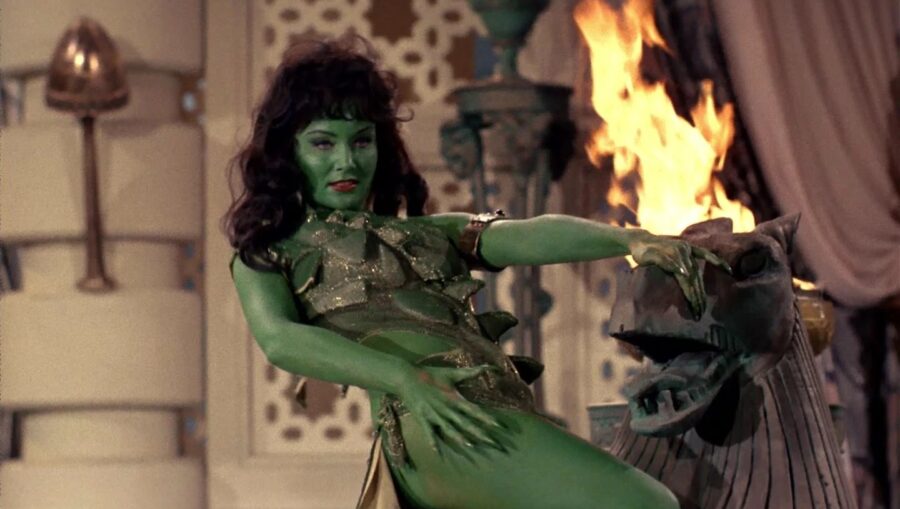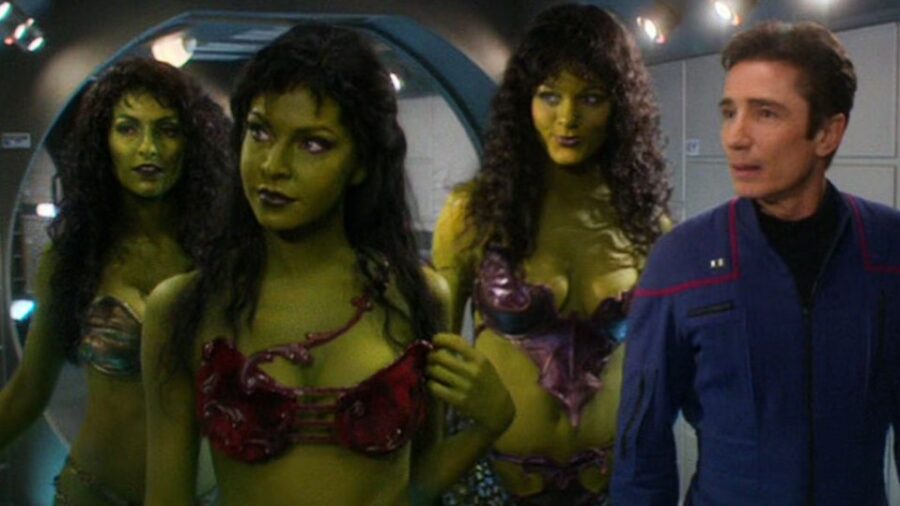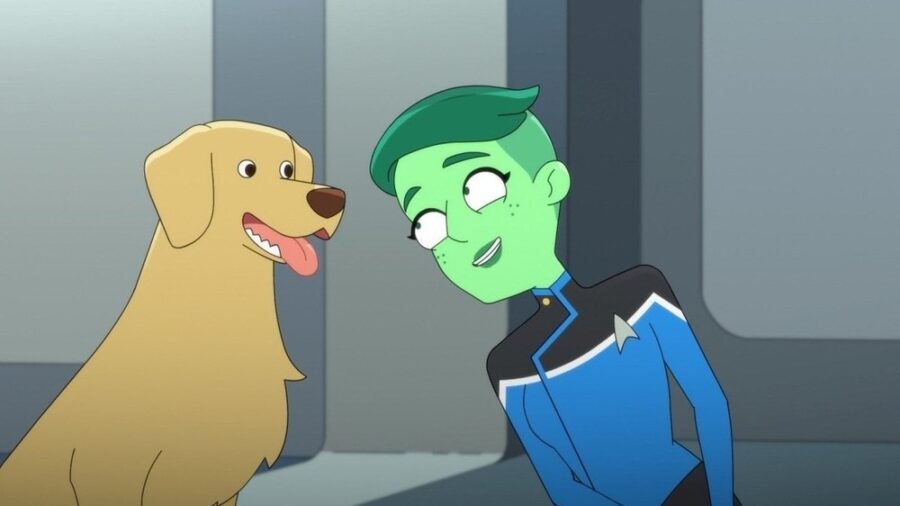Star Trek Fixes Its Most Misunderstood Species

The latest episode of Star Trek: Lower Decks provides some resolution to the disparate representations of Orions within the franchise. The green-skinned species was established all the way back in Star Trek’s original, rejected pilot episode “The Cage,” where Vina was presented in one of the Talosians’ illusions as an Orion slave girl. Since then, Orions have been frequently associated with piracy and the trading of enslaved persons, and especially with the power dynamic between male and female members of their species.
Star Trek has finally turned the Orions from slaves, to pirates, to a regular civilization thanks to a simple line in Lower Decks.
In “The Cage,” which was later re-edited as the majority of the two-part Star Trek: The Original Series episode “The Menagerie,” it seems that Orion women are generally in a subordinate position in their society and are frequently traded by men as slaves. However, the 2005 Star Trek: Enterprise episode “Bound” sought to remedy that portrayal, which seemed mired in 1960s sexism. Unfortunately, all it did was trade one sexism for another, introducing the idea that Orion women only pretended to be slaves and that the men of their society were actually under their control.
While simply flipping the gender dynamic is problematic all by itself, especially for a series like Star Trek that is rooted in progressive values, it didn’t help that the Orion women were only able to maintain this control of men through the use of pheromones that subordinated the men to their will. It isn’t any less sexist to put women on top, but even worse to say that, while men wouldn’t need chemical influence to dominate women, women certainly would need it to dominate men. It’s been a bit of a mess for a long time that most of Star Trek has tended to steer clear of.

But Star Trek: Lower Decks is all about both poking fun at and examining the inner workings of the minutiae of the franchise, and Orions are no exception. One of the series’ four main characters, D’Vana Tendi, is an Orion who is constantly having to correct people’s misperceptions of her home planet and culture. In the series’ most recent episode, “Something Borrowed, Something Green,” viewers get their first extensive look at the Orion homeworld and its society.
This new information about one of Star Trek’s oldest alien species helps address not only the incongruencies in the presentation of Orions so far in the franchise but also one of Star Trek’s nagging issues: the monoculture.
Also taking notes is the Vulcan on Star Trek: Lower Decks, T’Lynn, who records her observations of Orion culture throughout the episode. At one point, she observes that the men seem to be under some sort of chemical influence that is making them submissive to the women, but Tendi’s brief reply goes a long way toward repairing the canon issue regarding who’s in charge in Orion culture. Previously in the series, Mariner had mentioned that Tendi had told her Starfleet made up the idea of the men being controlled by the women’s pheromones to explain how a Starfleet captain (Archer) could have his ship nearly overtaken by “showgirls.

This latest episode of Star Trek: Lower Decks indicates that perhaps Tendi was covering a little bit back then as she has slowly become more and more open about her Orion heritage as the series has progressed. She tells T’Lynn that she never said Orion women do not control men with pheromones, just that not all of them do and that she does not. According to Tendi, some Orion women actually do this, but others do not, leaving plenty of room for both gender role scenarios to be true, along with others that have heretofore not been depicted in Star Trek.
Simply having a Star Trek character, particularly an Orion, saying, in essence, “We’re not all like that,” helps to demonstrate the idea that people from various alien cultures aren’t all the same.
This new information about one of Star Trek’s oldest alien species helps address not only the incongruencies in the presentation of Orions so far in the franchise but also one of Star Trek’s nagging issues: the monoculture. One of many critiques brought in recent years against the venerable science fiction franchise is that most alien cultures are depicted as consisting of only one set of values, one type of personality, and few variances in cultural roles. Vulcans are logical, Klingons are warriors, Ferengi are greedy, and so on.
Simply having a Star Trek character, particularly an Orion, saying, in essence, “We’re not all like that,” helps to demonstrate the idea that people from various alien cultures aren’t all the same. This also helps communicate the idea that people from various cultures on Earth aren’t all the same either. For all the value it places on diversity and multiculturalism, Star Trek frequently falls into the trap of making its cultures into stereotypes. This moment is one of many in recent Star Trek that has been pushing back against that trend, remedying an issue that has been an ongoing problem in representation across media.
As Star Trek: Lower Decks continues to develop Tendi as a character, we hope to learn more about the various cultural expressions of the Orions and more about Tendi as a person.










